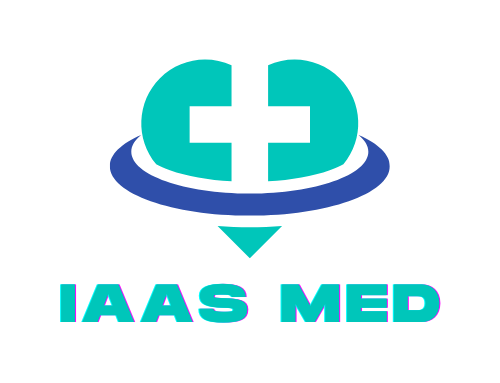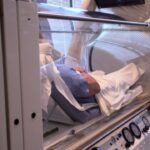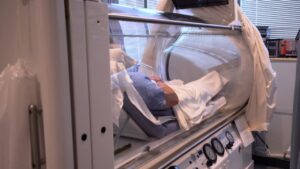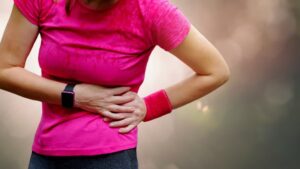Recovering from appendix surgery demands strict dietary control to promote healing and avoid complications. After surgery, your body needs the right nutrients to heal and regain strength.
However, some foods can hinder the healing process, cause digestive discomfort, or lead to complications like bloating, gas, or constipation. Knowing which foods to avoid is essential for a smooth and comfortable recovery.
Here is a straightforward list of foods to avoid after appendix surgery for a smooth and effective recovery.
High-Fat Foods
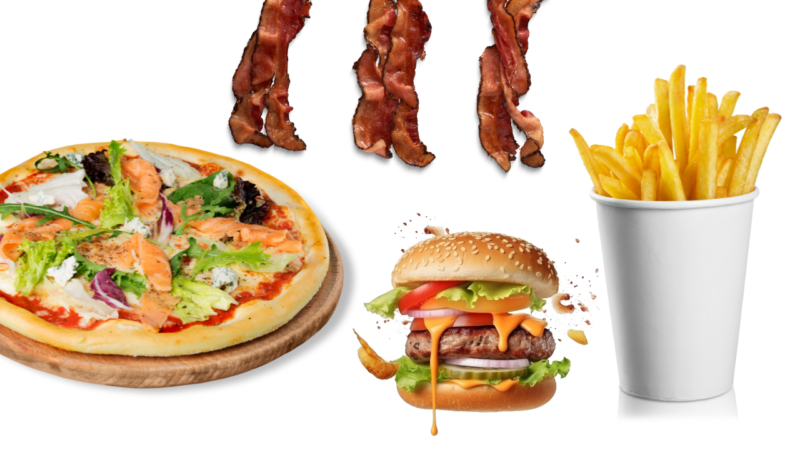
High-fat are one of the foods to avoid after appendix surgery because they can cause several complications:
Digestive Strain
High-fat foods are more challenging for the digestive system to break down because they require increased production of bile.
Bile, produced by the liver and stored in the gallbladder, helps in emulsifying fats, making them easier to digest.
After surgery, your body might not produce or utilize bile as efficiently, leading to digestive strain.
It’s best to stick to low-fat options to avoid putting unnecessary stress on your digestive system.
Nausea and Vomiting

Consuming foods that are high in fat can trigger nausea and vomiting, both of which can strain the abdominal muscles.
During the recovery period, your abdominal area, including the site of the surgical incision, is vulnerable and still healing.
- Increased pain
- Swelling
- Prolonged recovery time
In some cases, vomiting might even cause complications like wound dehiscence, where the surgical incision opens up.
For these reasons, it’s essential to eat foods that are light and easy to digest, especially in the initial days after surgery.
Diarrhea
Fatty foods can accelerate the transit of food through the intestines, leading to diarrhea.
Diarrhea is not only uncomfortable but also poses risks of dehydration and electrolyte imbalance.
Electrolytes, such as sodium, potassium, and magnesium, are crucial for maintaining nerve and muscle function, and losing them can weaken the body further.
During the healing phase, maintaining hydration and electrolyte balance is vital for a smooth recovery, so it’s advisable to steer clear of fatty foods that might lead to digestive disturbances.
Examples of High-Fat Foods to Avoid
- Fried Foods: Items such as fried chicken, french fries, and donuts are high in unhealthy fats and should be avoided.
- Fast Food: Burgers, pizza, and other fast foods often contain high levels of fat and preservatives, making them hard to digest.
- Full-Fat Dairy Products: Whole milk, cheese, butter, and ice cream should be limited as they contain high amounts of fat.
- Processed Snacks: Chips, cookies, and pastries are typically high in fats and offer little nutritional value.
- Fatty Meats: Bacon, sausage, and fatty cuts of beef or pork can be particularly hard on the digestive system post-surgery.
Healthier Alternatives
- Lean Proteins: Opt for lean cuts of meat such as chicken breast, turkey, and fish. These are easier to digest and provide essential nutrients without the high-fat content.
- Low-Fat Dairy: Choose skim milk, low-fat yogurt, and low-fat cheese options to reduce fat intake while still getting necessary nutrients like calcium and protein.
- Healthy Fats: Add healthy fats found in avocados, nuts, seeds, and olive oil. These provide essential fatty acids without the negative impact of saturated fats.
Tips for Transitioning to a Low-Fat Diet
- Gradual Changes: If your diet previously included a lot of high-fat foods, make gradual changes to avoid shocking your digestive system. Start by substituting one meal at a time with healthier options.
- Cooking Methods: Use healthier cooking methods such as baking, grilling, or steaming instead of frying.
- Reading Labels: Pay attention to food labels when grocery shopping. Look for items labeled low-fat or fat-free and avoid those with high levels of saturated or trans fats.
- Meal Planning: Plan your meals to ensure they are balanced and low in unhealthy fats. Adding a variety of fruits, vegetables, lean proteins, and whole grains can help maintain a nutritious and digestible diet.
Sugary Foods
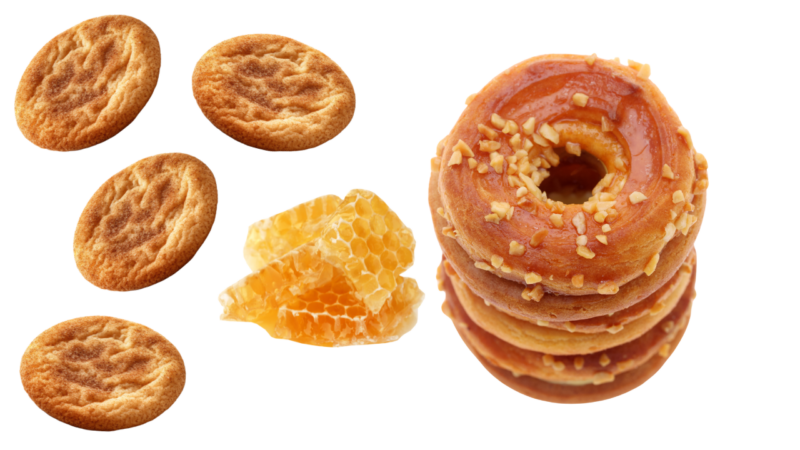
Digestive Issues
Consuming foods high in sugar can lead to rapid spikes in blood sugar levels, which can disrupt your digestive system. High sugar intake can draw water into the intestines, causing diarrhea.
Dehydration and electrolyte imbalances can make it harder for your body to heal, as these factors play a critical role in maintaining proper muscle function, nerve signaling, and overall cellular health.
To prevent these complications, it’s best to steer clear of sweets, sugary drinks, and high-sugar processed foods.
Inflammation
High sugar intake is known to promote inflammation in the body. When you consume a lot of sugar, it can trigger the release of inflammatory molecules called cytokines, which can increase overall inflammation levels.
After surgery, reducing inflammation is crucial, as it can help lower pain, swelling, and discomfort. Excessive inflammation can slow down the healing process, making it harder for your body to repair tissues at the surgical site.
Therefore, limiting foods with added sugars can help manage inflammation and ensure a smoother recovery.
Opting for anti-inflammatory foods like leafy greens, berries, and fatty fish can further support your body’s healing.
Weakened Immune System
Eating too much sugar can have a negative impact on your immune system. High sugar levels can suppress the activity of white blood cells, which are responsible for fighting off infections.
A weakened immune response makes your body more susceptible to infections, including those that might affect the surgical incision or other parts of the body. Infection is a serious risk after any surgery, and taking steps to strengthen your immune system can significantly improve your recovery outlook.
To protect your health, it’s best to avoid sugary snacks, sodas, and desserts, and instead focus on nutrient-dense foods that provide vitamins, minerals, and antioxidants to bolster your immune defenses.
Examples of Sugary Foods to Avoid
- Sweets and Desserts: Cakes, cookies, candies, and pastries are often loaded with sugar and provide little nutritional value.
- Sugary Beverages: Soft drinks, fruit juices with added sugar, energy drinks, and sweetened teas can contribute to excessive sugar intake and should be avoided.
- Processed Snacks: Many processed snacks, including certain granola bars, breakfast cereals, and flavored yogurt, contain high levels of added sugars.
- Sauces and Condiments: Ketchup, barbecue sauce, and certain salad dressings can have hidden sugars that add up quickly.
Healthier Alternatives
- Natural Sweeteners: If you need to add sweetness to your food, consider natural sweeteners like honey or maple syrup, but use them sparingly.
- Fresh Fruits: Fresh fruits such as berries, apples, and oranges can satisfy sweet cravings without the negative effects of added sugars. They also provide essential vitamins, minerals, and fiber.
- Unsweetened Beverages: Opt for water, herbal teas, or unsweetened beverages. Adding a slice of lemon or cucumber can make water more appealing.
- Whole Foods: Choose whole foods like nuts, seeds, and whole grains which are naturally low in sugar and provide sustained energy.
Tips for Reducing Sugar Intake
- Read Labels: Always check food labels for added sugars. Ingredients like high fructose corn syrup, cane sugar, and dextrose indicate the presence of added sugars.
- Prepare Your Meals: Cooking at home allows you to control the amount of sugar in your food. Use fresh ingredients and avoid pre-packaged meals whenever possible.
- Gradual Reduction: If you’re used to consuming a lot of sugary foods, reduce your intake gradually to help your body adjust. Start by cutting back on one sugary item at a time.
- Healthy Snacks: Keep healthy snacks on hand, such as nuts, fruits, and vegetables, to avoid the temptation of sugary treats.
Caffeinated Beverages
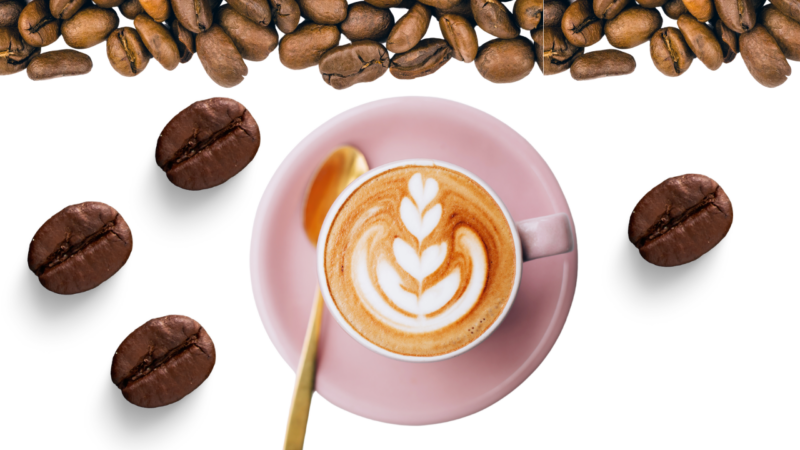
Dehydration
Caffeine acts as a diuretic, meaning it stimulates the kidneys to produce more urine, which can lead to increased fluid loss. After surgery, staying well-hydrated is essential to support tissue repair, maintain blood volume, and keep your energy levels stable.
Dehydration can cause or worsen post-surgery issues like constipation, dry mouth, fatigue, and dizziness. It can also strain the body’s systems, making it harder for the surgical wound to heal properly.
To ensure you stay hydrated, focus on drinking plenty of water, herbal teas, or electrolyte-enriched beverages, and limit or avoid caffeinated drinks such as coffee, energy drinks, and certain sodas.
Increased Heart Rate
Caffeine is a stimulant that can elevate both heart rate and blood pressure. After surgery, your body needs to be in a calm, rested state to focus on healing.
Elevated heart rates can increase anxiety, cause discomfort, and add unnecessary strain on the cardiovascular system.
The stress caused by higher blood pressure can also interfere with the healing process, potentially leading to prolonged recovery times.
For a smoother and faster recovery, it’s best to avoid caffeine and opt for non-stimulant drinks that keep your heart rate stable.
Stomach Irritation

Caffeine is known to increase the production of stomach acid, which can irritate the stomach lining. It leads to symptoms like nausea, acid reflux, or stomach cramps, which can be especially uncomfortable after abdominal surgery.
The digestive system is already in a sensitive state post-surgery, and introducing irritants like caffeine can cause unnecessary complications, making the recovery experience more painful and prolonged.
Instead, consider caffeine-free alternatives that are gentle on the stomach, such as warm herbal teas like chamomile or ginger, which can help soothe the digestive tract.
Interference with Sleep
Rest is one of the most important components of the recovery process, as it allows the body to repair tissues, reduce inflammation, and restore energy levels.
Caffeine can disrupt sleep patterns by making it difficult to fall asleep or stay asleep, which can impede healing.
Poor sleep can also weaken the immune system, increase pain sensitivity, and lead to mood disturbances, all of which can negatively impact recovery.
Avoiding caffeinated beverages, especially in the afternoon and evening, can help ensure you get the deep, restorative sleep necessary for a smooth and speedy recovery.
Examples of Caffeinated Beverages to Avoid
When recovering from appendix surgery, it’s important to avoid certain caffeinated beverages that can interfere with the healing process.
Even if they seem harmless, many drinks contain caffeine, which can lead to dehydration, increased heart rate, stomach irritation, and disrupted sleep patterns.
- Coffee: Both regular and decaffeinated coffee contain varying amounts of caffeine and should be avoided until the doctor advises otherwise.
- Tea: Black, green, and some herbal teas contain caffeine. Opt for herbal teas labeled as caffeine-free.
- Soft Drinks: Many sodas, including colas and energy drinks, contain high levels of caffeine and sugar.
- Energy Drinks: These drinks are often loaded with caffeine and sugar, which can be harmful during the recovery period.
- Chocolate Beverages: Hot chocolate and chocolate milk contain caffeine. These should be avoided or consumed in minimal amounts.
Healthier Alternatives
After appendix surgery, staying hydrated and choosing gentle, non-stimulant beverages are crucial for a smooth and comfortable recovery.
- Water: The best choice for hydration. Ensure you drink plenty of water throughout the day to stay hydrated and support recovery.
- Herbal Teas: Choose caffeine-free herbal teas, such as chamomile, peppermint, or ginger tea. These can also help soothe the digestive system.
- Infused Water: Adding slices of fruit, cucumber, or herbs to water can make it more appealing without adding caffeine.
- Decaffeinated Beverages: If you miss the taste of coffee or tea, choose completely caffeine-free versions, but consult your doctor before making this switch.
Tips for Managing Caffeine Withdrawal
Managing caffeine withdrawal can be challenging, especially if you were used to consuming large amounts of caffeine before your appendix surgery.
Abruptly cutting out caffeine can lead to withdrawal symptoms like headaches, irritability, fatigue, and difficulty concentrating.
- Gradual Reduction: If you consumed a lot of caffeine before surgery, reduce your intake gradually to avoid withdrawal symptoms such as headaches, irritability, and fatigue.
- Stay Hydrated: Increase your water intake to help manage withdrawal symptoms and maintain hydration.
- Get Enough Rest: Ensure you get plenty of sleep to help your body cope with the reduction in caffeine and aid in recovery.
- Healthy Snacks: Keep healthy, caffeine-free snacks on hand to manage cravings and maintain energy levels.
Alcohol
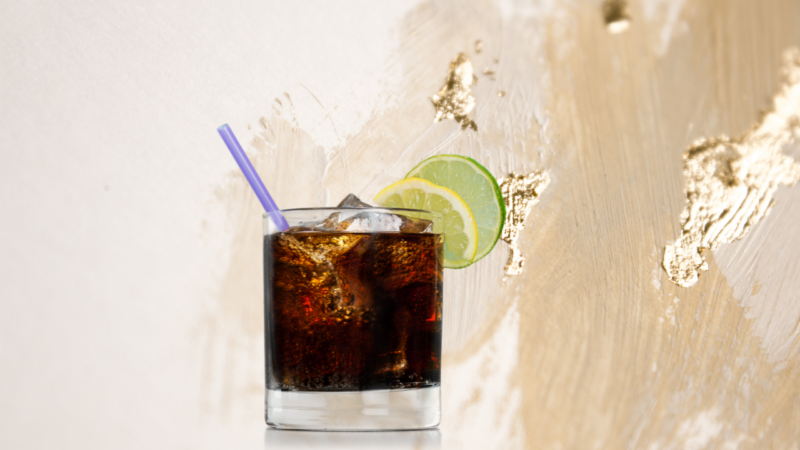
Interference with Medications
Following surgery, your doctor may prescribe a variety of medications, including:
- Painkillers
- Antibiotics
- Anti-inflammatory drugs
Alcohol can interact negatively with these medications, reducing their effectiveness and potentially leading to dangerous side effects.
For instance, alcohol can increase the sedative effects of pain medications, causing excessive:
- Drowsiness
- Confusion
- Respiratory problems
It can also interact with antibiotics, decreasing their ability to fight off infection or, in some cases, leading to severe reactions.
To ensure your medications work as intended and support your recovery, it’s critical to avoid alcohol until your doctor gives you the green light.
Dehydration
Alcohol acts as a diuretic, which means it increases urine production, leading to water loss and potential dehydration.
Staying well-hydrated is vital after surgery because fluids help maintain blood circulation, promote digestion, and assist in transporting nutrients to healing tissues.
Dehydration can worsen post-surgery symptoms such as constipation, dizziness, and fatigue, all of which can slow down your recovery.
Avoiding alcohol and opting for hydrating beverages like water, herbal teas, or electrolyte solutions will help your body heal faster and keep you comfortable during the recovery phase.
Increased Bleeding Risk
One of the most critical aspects of post-surgical recovery is ensuring that your blood clots properly to protect the healing incision.
Alcohol can thin the blood and inhibit clotting, increasing the risk of bleeding complications.
Until your body has had time to heal, it’s best to avoid alcohol to minimize any risk of bleeding and to support proper clotting at the surgical site.
Weakened Immune System
Alcohol consumption can suppress the immune system, reducing your body’s ability to fight off infections.
After surgery, your immune system is already working hard to ward off potential infections at the surgical site.
Drinking alcohol can impair this defense mechanism, making you more vulnerable to complications like:
- Wound infections
- Respiratory infections
- Sepsis
To give your immune system the best chance to protect and heal your body, it’s crucial to steer clear of alcoholic beverages until you have fully recovered.
Delayed Healing
Proper wound healing depends on the absorption of essential nutrients, such as vitamins A, C, D, and E, along with minerals like:
- Zinc
- Protein
These nutrients play vital roles in tissue repair, immune function, and collagen production, which are all necessary for your body to heal.
Alcohol can disrupt nutrient absorption by damaging the lining of the stomach and intestines, which can lead to malnutrition even if you are eating well.
It can interfere with the liver’s ability to process and store nutrients, further hindering the recovery process.
For optimal healing, it is best to maintain a balanced, nutritious diet and avoid substances like alcohol that could impede nutrient uptake.
Examples of Alcoholic Beverages to Avoid
When recovering from appendix surgery, it’s important to avoid all types of alcoholic beverages, as they can interfere with your healing process.
- Beer: Contains not only alcohol but also carbonation, which can cause bloating and discomfort post-surgery.
- Wine: Both red and white wines contain alcohol, which can interfere with recovery.
- Spirits: Whiskey, vodka, rum, and other spirits have high alcohol content and should be avoided.
- Mixed Drinks and Cocktails: Often contain both alcohol and sugary mixers, which can be doubly detrimental.
Healthier Alternatives
During the recovery period after appendix surgery, choosing the right beverages can make a significant difference in how quickly and comfortably your body heals.
While certain drinks like caffeinated beverages and alcohol should be avoided, there are several healthier alternatives that can keep you hydrated, promote digestion, and support your overall recovery.
- Water: The best option for staying hydrated and supporting recovery. Drink plenty of water throughout the day.
- Herbal Teas: Caffeine-free options such as chamomile, peppermint, and ginger tea can be soothing and hydrating.
- Infused Water: Enhance water with slices of fruits, herbs, or vegetables like lemon, cucumber, or mint for a refreshing alternative.
- Electrolyte Solutions: If dehydration is a concern, electrolyte solutions can help maintain fluid balance and support recovery.
Spicy Foods
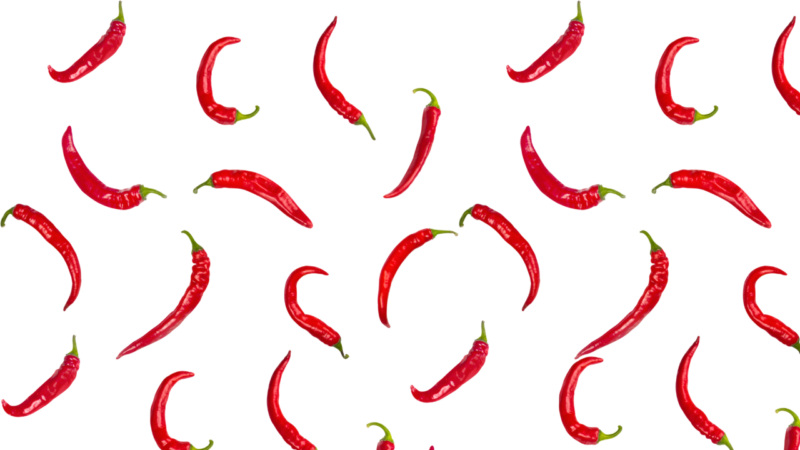
Stomach Irritation
Spicy foods contain compounds, like capsaicin, that can irritate the stomach lining and intestines.
After abdominal surgery, your digestive system is in a sensitive state, and consuming spicy foods can lead to discomfort, cramping, and even increased pain.
The irritation can cause the muscles in the stomach to contract more forcefully, which can be particularly painful when your body is still recovering from surgery.
Opting for bland, easy-to-digest foods can help minimize discomfort and promote a smoother recovery.
Acid Reflux
Furthermore, they are known to trigger acid reflux, a condition where stomach acid flows back up into the esophagus, causing a burning sensation in the chest known as heartburn.
After surgery, the abdominal area is still healing, and the added pressure from acid reflux can strain the surgical site, leading to increased pain and potential complications.
Nausea and vomiting caused by reflux can also disrupt the recovery process, as they can lead to dehydration and discomfort.
To avoid these issues, it is best to eat mild, non-spicy foods that do not irritate the esophagus or cause reflux symptoms.
Diarrhea
These foods can act as stimulants for the digestive system, increasing gut motility and causing diarrhea. While diarrhea is uncomfortable under normal circumstances, it can be particularly problematic after surgery.
Diarrhea can lead to dehydration and an imbalance of electrolytes, which are essential for maintaining proper body functions, including muscle contractions, nerve signaling, and overall fluid balance.
Dehydration can further weaken the body and delay the healing process, so avoiding spicy foods that might trigger diarrhea is essential for a steady recovery.
It’s recommended to choose foods that are gentle on the stomach, such as boiled vegetables, plain rice, and lean proteins.
Increased Inflammation

Certain spices can promote inflammation in the digestive tract, which can cause increased discomfort and hinder the body’s natural healing process.
For instance, compounds like capsaicin can irritate the intestinal lining, leading to inflammation, swelling, and even localized pain.
After surgery, minimizing inflammation is crucial to ensure a smoother and faster recovery, as inflammation can slow down tissue repair and prolong the healing of the surgical incision.
Consuming anti-inflammatory foods, such as leafy greens, berries, and foods rich in omega-3 fatty acids, can help counteract inflammation and support the body’s healing mechanisms.
The strain on Digestive Muscles
The heat from spicy foods can sometimes cause the stomach muscles to contract more than usual, leading to cramps and discomfort.
After appendix surgery, it’s important to avoid any unnecessary strain on the digestive system, as it needs time to rest and heal.
By eliminating spicy foods from your diet, you can reduce the likelihood of cramps, bloating, and digestive distress that can hinder your recovery.
Examples of Spicy Foods to Avoid
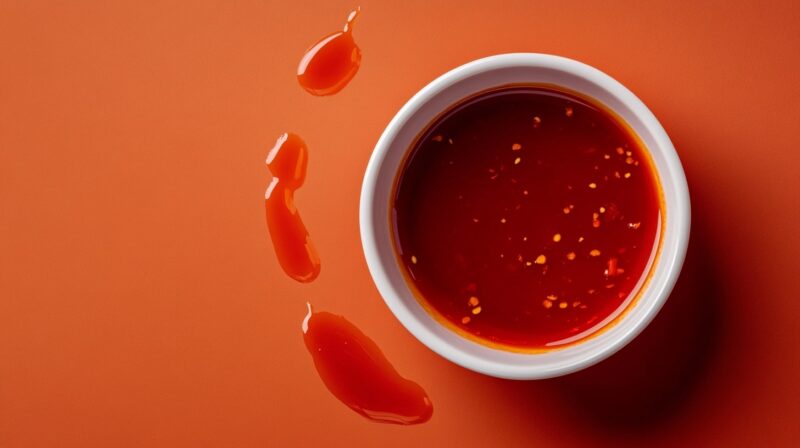
After appendix surgery, it’s advisable to avoid spicy foods as they can irritate the digestive system, cause discomfort, and potentially lead to complications such as acid reflux or stomach upset.
- Hot Peppers: Including jalapeños, habaneros, and other chili peppers.
- Spicy Sauces: Hot sauce, sriracha, and chili oil.
- Spicy Snacks: Flavored chips and snacks with added spices and heat.
- Spiced Dishes: Curries, spicy stir-fries, and heavily seasoned ethnic foods like some Mexican, Indian, and Thai dishes.
Healthier Alternatives
During the recovery period after appendix surgery, it’s important to choose foods that are not only nutritious but also easy on the digestive system.
Strong or spicy flavors can irritate the stomach, especially when it’s already sensitive, so opting for milder seasonings and simple dishes is key.
- Mild Seasonings: Use herbs and mild spices like basil, oregano, and thyme to add flavor without heat.
- Non-Spicy Sauces: Opt for tomato-based sauces without added heat or creamy sauces that are easy on the stomach.
- Simple Dishes: Stick to bland, easy-to-digest foods like boiled potatoes, plain pasta, and rice during the initial recovery phase.
- Flavorful Vegetables: Incorporate vegetables like carrots, peas, and green beans that are flavorful yet gentle on the digestive system.
High-Fiber Foods Initially
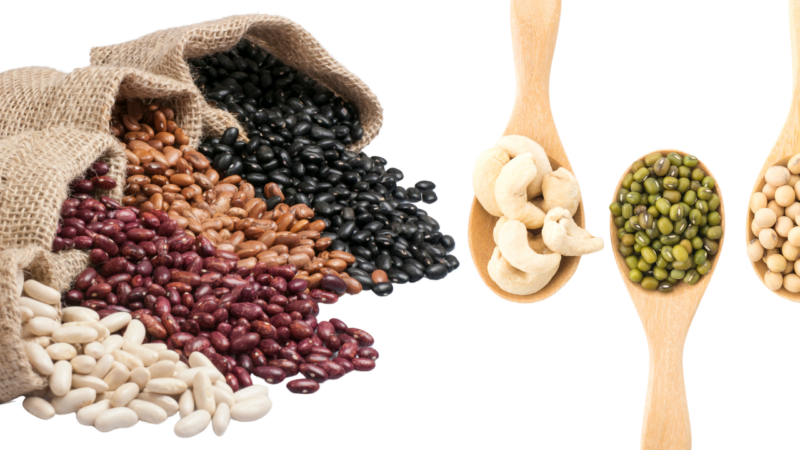
Here’s why:
Digestive Strain
High-fiber foods, such as whole grains, raw vegetables, beans, and certain fruits, are more difficult for the body to break down, especially when the digestive system is still sensitive after surgery.
Introducing these foods too soon can cause bloating, gas, and abdominal discomfort, all of which can lead to a painful and unpleasant recovery experience.
The intestines need time to adjust and regain their normal function post-surgery, and high-fiber foods can be challenging to process during this period.
To prevent digestive strain, it’s best to start with low-fiber, easily digestible foods like white rice, cooked vegetables, and lean proteins before gradually reintroducing more fibrous options.
Increased Bowel Movements
One of the main benefits of fiber is its ability to add bulk to stool, which helps promote regular bowel movements.
However, immediately after surgery, increased bowel activity can be uncomfortable and may put unnecessary pressure on the surgical site.
Straining during bowel movements can lead to pain and potentially interfere with the healing of the incision.
For this reason, it’s crucial to avoid foods that could lead to frequent or difficult bowel movements during the initial recovery period.
Gradually reintroducing fiber into your diet as your body heals will help maintain digestive health without causing strain.
Risk of Obstruction
In the days following appendix surgery, the bowels might not be functioning at their usual capacity.
High-fiber foods, which are bulkier and harder to digest, can lead to a blockage if consumed too soon.
An intestinal obstruction can cause severe complications, including abdominal pain, nausea, vomiting, and the need for further medical intervention.
For individuals recovering from surgery, the risk of this happening increases, particularly if the bowel movements have not yet returned to normal.
Starting with low-residue foods, which produce less waste, can minimize the risk of obstruction and allow the digestive system to heal without added stress.
Reduced Digestive Efficiency
After abdominal surgery, the digestive muscles may be weaker, and the normal peristaltic action (muscular contractions that move food through the intestines) might be slower.
High-fiber foods can require more vigorous contractions to move through the digestive tract, which can be difficult for a recovering digestive system to handle.
Overloading the intestines with fiber before they are ready can lead to symptoms like cramping, discomfort, and feelings of fullness, all of which can be avoided by initially sticking to lower-fiber foods.
Soft, easy-to-digest options like applesauce, mashed potatoes, and broth-based soups can be gentle on the system while still providing essential nutrients.
Examples of High-Fiber Foods to Avoid Initially
After appendix surgery, your digestive system is sensitive and needs time to recover.
High-fiber foods, while generally healthy, can be challenging to digest and may lead to discomfort, bloating, and gas during the initial stages of recovery.
Fiber adds bulk to stool, which can strain a delicate digestive system, potentially leading to pain and slower healing.
It is best to avoid high-fiber foods until your doctor advises that your digestive system is ready to handle them again.
- Raw Vegetables: Carrots, broccoli, cauliflower, and other raw vegetables are high in fiber and can be hard to digest.
- Whole Grains: Foods like whole wheat bread, brown rice, and oatmeal contain high levels of fiber that can be difficult to process.
- Legumes: Beans, lentils, and chickpeas are fiber-rich and can cause bloating and gas.
- Fruits with Skins and Seeds: Apples, berries, and pears, particularly with skins and seeds, are high in fiber.
- Nuts and Seeds: Almonds, walnuts, chia seeds, and flaxseeds should be avoided initially due to their high fiber content.
Healthier Alternatives
After appendix surgery, your digestive system may be more sensitive, so it’s important to choose foods that are gentle and easy to digest.
Opting for softer, low-fiber foods can help reduce the strain on your digestive tract, minimize discomfort, and promote a smoother recovery.
- Cooked Vegetables: Opt for well-cooked, peeled vegetables like carrots, zucchini, and potatoes. Cooking breaks down fiber, making it easier to digest.
- Refined Grains: Choose white rice, white bread, and pasta made from refined flour. These have lower fiber content and are easier on the digestive system.
- Low-Fiber Fruits: Bananas, canned fruits (without added sugar), and applesauce are easier to digest and can be included in your diet initially.
- Lean Proteins: Focus on lean meats like chicken and fish, and dairy products like yogurt, which are gentle on the digestive system and provide necessary nutrients for healing.
Processed Foods
After appendix surgery, it’s important to pay close attention to your diet to support healing and avoid complications. Processed foods, although convenient, are best avoided during this period for several reasons.
While they may be a quick option, they often lack the necessary nutrients your body needs to recover efficiently. Here’s a closer look at why processed foods should be kept off the menu after surgery:
Nutrient Deficiency
Processed foods typically go through extensive manufacturing, which strips away many of the essential nutrients naturally found in whole foods.
As a result, they often lack key vitamins, minerals, and fiber that are crucial for the body’s healing process.
For example, nutrients like vitamin C, zinc, and protein play a significant role in tissue repair, immune function, and overall recovery.
When you consume nutrient-deficient foods, your body doesn’t get the support it needs to rebuild tissues and restore strength effectively.
For a quicker, smoother recovery, prioritize whole, nutrient-dense foods that provide your body with everything it needs to heal.
High in Unhealthy Fats and Sugars
Many processed foods are loaded with unhealthy fats, refined sugars, and high levels of sodium.
Unhealthy fats, such as trans fats and saturated fats, can contribute to inflammation in the body.
- Reducing pain
- Reducing swelling
- Promoting healing
Consuming foods high in sugar can also cause rapid spikes and crashes in blood sugar levels, leading to digestive issues like:
- Bloating
- Gas
- Diarrhea
Furthermore, excessive sugar intake can lead to systemic inflammation, which can delay the healing process and increase discomfort.
Opting for meals made from whole, fresh ingredients helps avoid these issues and provides a more stable, balanced source of energy.
Additives and Preservatives
One of the hallmarks of processed foods is the presence of additives, preservatives, artificial flavors, and colors.
While these ingredients help extend shelf life and enhance taste, they can irritate the digestive system, especially when it is already sensitive after surgery.
Additives such as artificial sweeteners, flavor enhancers, and colorants can cause bloating, gas, and diarrhea, which can be uncomfortable and disrupt the healing process.
Preservatives like sodium nitrite or artificial colors can trigger inflammatory responses in some people, exacerbating pain and prolonging recovery.
Increased Risk of Infection
Proper nutrition plays a crucial role in supporting a strong immune system.
Foods that are processed and low in nutrients can weaken your immune system, making it harder for your body to fight off potential infections.
After surgery, maintaining a robust immune response is vital to protect against infections at the surgical site or elsewhere in the body.
Consuming processed foods can compromise your immune defenses, putting you at a higher risk of complications like wound infections, which can lead to extended hospital stays or additional treatments.
A diet rich in whole foods such as fruits, vegetables, lean proteins, and whole grains will help keep your immune system strong and capable of defending against pathogens.
Examples of Processed Foods to Avoid
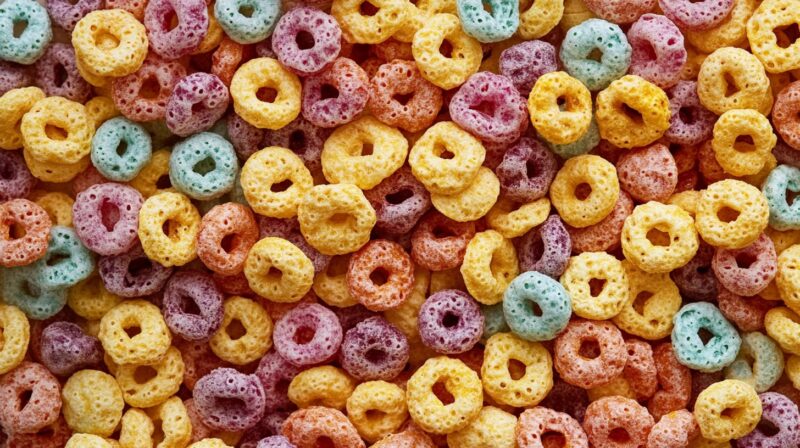
During the recovery process, it’s essential to choose foods that are easy to digest, nutrient-rich, and free from harmful additives.
Processed foods often lack these qualities and can hinder the healing process.1
- Packaged Snacks: Chips, crackers, and other packaged snacks often contain unhealthy fats, high sodium levels, and minimal nutritional value.
- Fast Food: Burgers, fries, pizza, and other fast food items are typically high in unhealthy fats, sugars, and additives.
- Sugary Cereals: Many breakfast cereals contain high amounts of sugar and artificial ingredients.
- Frozen Meals: Ready-made frozen dinners and processed meats like hot dogs and sausages are loaded with preservatives and unhealthy fats.
- Canned Foods: While some canned foods can be healthy, many contain added sugars, salts, and preservatives that are not conducive to healing.
Healthier Alternatives
Choosing healthier alternatives after appendix surgery can make a significant difference in your recovery.
Your body needs the right nutrients to heal efficiently, and avoiding processed foods in favor of whole, natural options will provide the support it needs.
- Whole Foods: Focus on whole, unprocessed foods like fresh fruits, vegetables, whole grains, lean proteins, and legumes. These provide the necessary nutrients for recovery.
- Homemade Meals: Preparing meals at home allows you to control the ingredients and ensure they are nutritious and free from harmful additives.
- Fresh Snacks: Opt for fresh fruits, vegetables, nuts, and seeds as snacks instead of packaged items.
- Simple Ingredients: Choose foods with minimal ingredients and avoid those with long lists of additives and preservatives.
Tips for Transitioning from Processed Foods
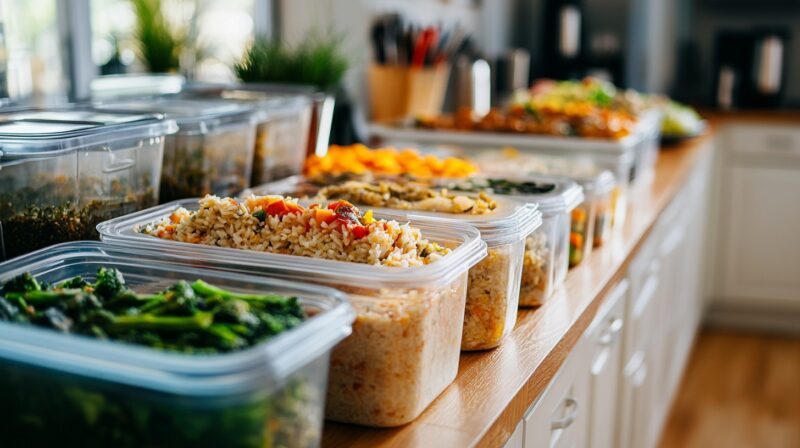
Transitioning away from processed foods, especially after surgery, can be a challenging but rewarding step toward better health and a faster recovery.
Making the switch to a diet rich in whole, nutrient-dense foods will provide your body with the essential nutrients it needs to heal effectively.
- Meal Planning: Plan your meals ahead of time to avoid the temptation of grabbing processed convenience foods.
- Read Labels: When shopping, read food labels carefully to avoid products with added sugars, unhealthy fats, and artificial ingredients.
- Cook in Batches: Prepare large batches of healthy meals and freeze portions for later use. This can save time and reduce the reliance on processed foods.
- Healthy Swaps: Replace processed snacks with healthier options. For example, swap chips for air-popped popcorn, or sugary cereals for oatmeal with fresh fruit.
Last Thoughts
Now that you know foods to avoid after appendix surgery, you can make the recovery process significantly easier.
Opt for nutrient-dense alternatives such as lean proteins, low-fat dairy, mild seasonings, whole foods, and hydrating beverages. Gradually reintroduce more complex foods as your body recovers, and always follow your doctor’s advice.
References
- MedlinePlus – Bile
- Cancer.gov – Hyperalgesia
- EverydayHealth – Dehydration: A Complication That May Arise From Diarrhea
- WebMD – What to Know About Skim Milk
- NHS.uk – Processed foods
- Heart – Tips for Cutting Down on Sugar
- ncbi.nlm.nih – Physiology, Cardiovascular
- pmc.ncbi.nlm.nih.gov – Effects of caffeine on sleep quality and daytime functioning
- TheWhistlingKettle – Caffeine Free Teas Explained: Get More Flavor With No Side Effects
- ncbi.nlm.nih – Withdrawal Management
- SleepFoundation – Managing Excessive Daytime Sleepiness
- MayoClinic – Sepsis
- ods.od.nih – Zinc
- Medicinenet – Heartburn
- The Nutrition Source – Omega-3 Fatty Acids: An Essential Contribution
- All Recipes – Pickled Jalapeños
- The Spruce – How to Grow and Care for Oregano
- MountSinai – Abdominal pain
- NHS Inform – Constipation
- pmc.ncbi.nlm.nih – Therapeutic Benefits and Dietary Restrictions of Fiber Intake: A State of the Art Review
- Science Direct – Tissue Repair
- Hopkins Medicine – Bloating: Causes and Prevention Tips
- NutriSci – Natural and Artificial Flavors
- UclaHealth – What you need to know about processed foods – and why it is so hard to quit them
Related Posts:
- What to Eat and What Not- After Appendix Removal Surgery
- Minimally Invasive Surgery: Pros, Cons, and Recovery Tips
- 5 Common Causes of Acid Reflux and How to Avoid Them
- Guillain Barré Syndrome Explained: Symptoms, Causes,…
- What to Eat Post-Appendix Surgery for Optimal Healing
- Weight Loss After Gallbladder Removal Surgery –…
